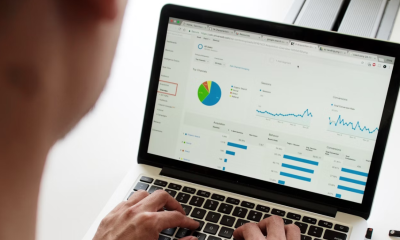
Achieving financial security doesn't happen overnight. It requires careful planning, discipline, and a commitment to living within your means. For business-driven people, maintaining a healthy financial status is crucial. This guide provides practical budgeting tips to help you secure a more stable financial future.
Understanding your financial situation
The first step towards financial stability is gaining a clear understanding of your current financial situation. Assess your income, expenses, debts, and savings. This assessment provides a snapshot of your financial health and helps identify areas for improvement.
Track your income and expenses
Maintaining a detailed record of all income sources and expenses is essential. This practice reveals spending patterns and helps pinpoint areas where you can cut costs. Use budgeting tools or apps to simplify tracking and ensure accuracy.
Categorise your spending
Organise your expenses into categories such as housing, utilities, groceries, transportation, entertainment, and business-related costs. This categorisation helps visualise where your money goes and highlights areas for potential savings.
Setting realistic financial goals
Setting achievable financial goals keeps you focused and motivated. Goals provide direction and a clear path to financial stability.
Short-term goals
Short-term goals, such as saving for an emergency fund or paying off small debts, are attainable within a year. These goals offer quick wins and build momentum towards larger objectives.
Long-term goals
Long-term goals require more planning and time. These may include retirement savings, business expansion, or purchasing property. Break these goals into manageable steps to maintain progress and stay motivated.
Creating a budget plan
A well-structured budget is the backbone of financial stability. It ensures you allocate funds effectively and avoid unnecessary spending.
Prioritise essential expenses
List all necessary expenses, including rent, utilities, insurance, and loan repayments. Prioritise these costs to ensure they are covered before considering non-essential items.
Allocate for savings
Make saving money a priority by setting aside a portion of your income before other financial commitments. Establish a habit of regularly contributing to your savings account, perhaps through automatic transfers, to build a solid financial cushion.
Limit discretionary spending
Identify areas where you can cut back on non-essential spending, such as dining out, entertainment, and luxury items. Reducing these expenses can help you free up funds to support more critical financial goals.
Managing debt wisely
Debt can quickly derail your financial plans if not managed properly. Adopting smart strategies helps keep debt under control and minimises its impact on your budget. With the rise of digital banking, it's easier than ever to apply to online loans, which can offer competitive interest rates and flexible repayment options.
Prioritise high-interest debt
Focus on paying off high-interest debt first, such as credit cards and personal loans. Reducing these debts decreases the amount you pay in interest over time, freeing up funds for other uses.
Consolidate debt
Managing multiple debts can be challenging, but consolidating them into a single loan simplifies repayment and can save money on interest.
Regularly review and adjust your budget
Financial circumstances change, and your budget should adapt accordingly. Regularly reviewing and adjusting your budget ensures it remains effective and aligned with your goals.
Monthly reviews
Conduct monthly reviews of your budget to track progress and make necessary adjustments. This practice helps identify any deviations from your plan and allows for timely corrections.
Annual assessments
Perform a comprehensive review of your financial situation at least once a year. Assess your progress towards long-term goals and adjust your budget to reflect any changes in income, expenses, or financial priorities.
Conclusion
Living within your means is the cornerstone of financial security. By understanding your financial situation, you can achieve and maintain financial stability. Start today, and take control of your financial destiny.
Copyright 2024. Featured post made possible by Amanda Wilson.
